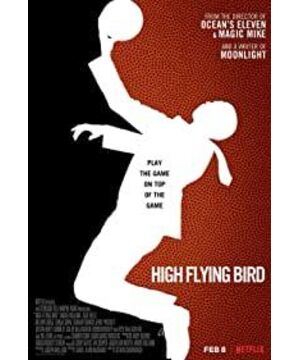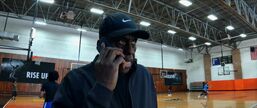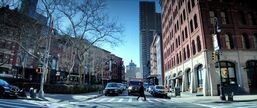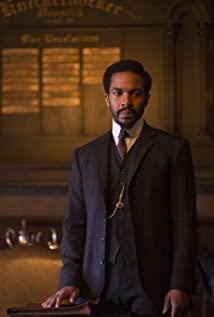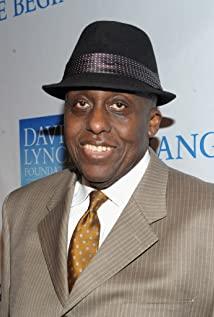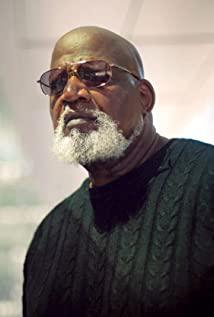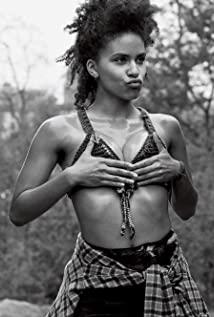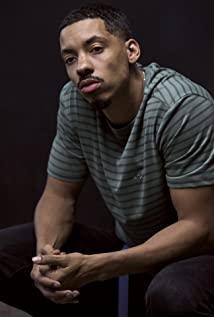By Mark Asch (Film Comment)
Translator: csh
The translation was first published in "Iris"
In "High Flying Bird," Steven Soderbergh explores a new career in his wildly inventive way. The practitioners in this type of film he shoots all serve some kind of "gig economy" by "selling" their bodies economics): in "The Fighting Shot," he discusses professional female killers who are proficient in combat; in "Call Girlfriend" and "Magic Mike" he discusses sex workers; and in "High Flying Bird" , this occupation is a basketball player. In this new Netflix film, he lurks a multi-layered metaphor: "High Flying Bird" sees basketball players as content producers for an entertainment industry powered by live-streaming sites, and in between relationship, as is the black labor market dominated by white wealthy businessmen and their control. The actions of Colin Kaepernick and others heralded a more public discussion, as people began to think about the analogy of such sports to the "farm system." Athlete, once took a knee during the national anthem before a game to protest the oppression of black people and other people of color in American society). "High Flying Bird" attracted attention largely because of the film's screenwriter Tarrell McCartney, who also created "Moonlight." By contrast, Soderbergh's move to return to the streaming platform may not get the same level of attention. But in any case, his move has multi-dimensional significance, which can be considered from different perspectives such as the idea of freedom and the identity of the media.
The film tells the story of Dean Ray (Andre Horan), a beleaguered sports agent during a time when the NBA is shut down. His client's checks are frozen, and the league's next network TV contract is still pending. He has to deal with the problems at hand, keep his job -- and, of course, defend the soul of basketball. "High Flying Bird," a sports movie for sports fans, is set to reveal "the game behind the game," which will be released on Presidents Day weekend. It's mostly about hoaxes in conference rooms, not match-fixing on the basketball court. It takes on a typical Soderbergh-style crime film structure, adept at creating narrative vacuums through flashbacks and obsessed with exploring what happens when “the tiniest shift in the system” occurs.
In this business system, Ray and his assistant (Sagee Baez) are just some kind of role-player. They serve top rookie player Eric Scott (Melvin Gregg), whose jobs include editing his tweets when Eric gets into a spat with his future teammates. In this game, the key figures on both sides of labor and management are the representative of the players' association (Sonia Song) and the boss of the league (Kyle MacLachlan, a typical rich man with a heart and a heart, The image of the white privileged class is vividly reflected). Ray mediates between the two. Although he has a sincere love for the game of basketball, in the process of his work, he is more improvising to find a breakthrough angle than finding a way to coordinate between different interest groups. Relationship.
Like last year's "Crazy Maniac," Soderbergh's "High Flying Bird" was shot on an iPhone this year, largely on a meta-textual basis -- making the film look like Shot by an amateur indie director who seems to have a low budget but is well versed in the workflow of working with digital images. At the same time, the choice of this shooting tool also has its unique aesthetic appeal. Lighter camera equipment is ideal for hand-held low-angle shots and follow-up shots. The fisheye lens, which opens when the phone is placed on the table, gives the footage a mysterious, objective, voyeuristic quality that makes the film look like a Call Girl set in Manhattan: both Both create an angular neutral space in which only invisible capital flows. A Bronx basketball coach and neighbor basketball legend Spence (Bill Duke) serves as Ray's "mentor" and enlightens his conscience in the film. Spence is an old and ruthless character. He sometimes uses his soft but harsh voice to repeatedly say some off-topic but rather vivid arguments, criticizing this large-scale business that devours and materializes young black talents. game.
From the descriptions of other characters, Scott may be one of those talents (but we rarely see anyone playing that includes him). The point guard is a New York City street basketball marvel, considered a combination of Nate Archibald and Stephen Marbury. Won the 1980-1981 NBA Championship with the Boston Celtics, who was a two-time NBA All-Star). In today's NBA, the most famous star is good at long-distance three-point shooting, and this scoring method has gradually become the focus of the game. Therefore, Scott's hard-core guard who is good at body collision seems a bit outdated. The fictional character is also believed to have a mysterious connection to the Harlem Wizards basketball team. team played). "High Flying Bird" looks like it's condensing nearly a decade of basketball history into this one-and-a-half hour film: In basketball, athletes can use their online fans to become stars to make themselves Out of any control; the memes they send online attract even more attention than the highlights on the basketball court; the news about Scott's social media accounts has become the most important sports topic of the day.
This is an in-depth current affairs film that simultaneously explores many different issues: Black identity and its relationship to "entrepreneurship," personal branding, and "storytelling." In "High Flying Bird," you can see interviews with current NBA players Reggie Jackson, Karl-Anthony Towns, and Donovan Mitchell, which are scattered unadorned throughout the film to create A sports illusion. However, after watching the film, we realize that the director is telling us not to be blinded by these appearances, and to stay awake.
View more about High Flying Bird reviews


